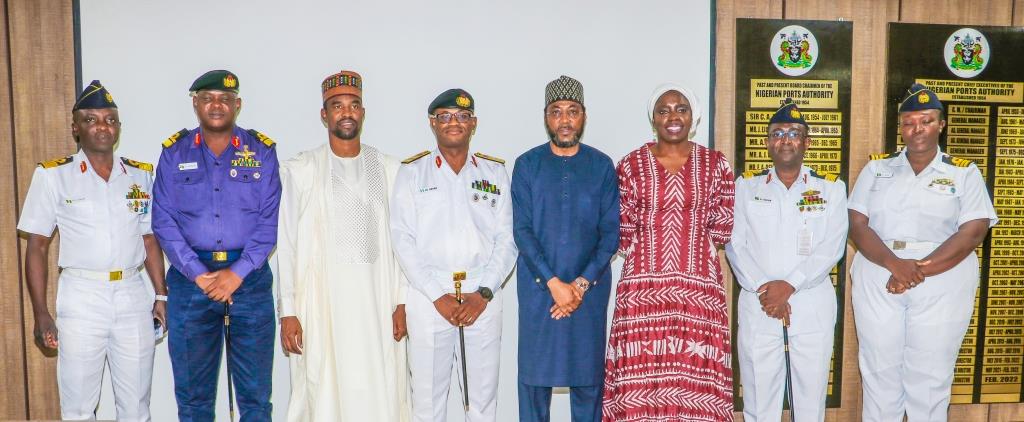Contrary to the whole noise made by the Minister of Transportation, Mr. Rotimi Amaechi and the Director General of Nigerian Maritime Administration and Safety Agency (NIMASA), Mr. Dakuku Peterside on growing Blue Economy and deepening participation of indigenous shippers in both crude lifting and west coast shipping business, 2018 is about to end without any sign of release of the statutory lifeline that will drive local shippers’ empowerment.
This is based on the fact that no local shipping industry operator was able to access the Cabotage Vessel Financing Fund (CVFF), which is believed to have accumulated N44.64bn ($124) deducted from their annual earnings since 2004.
Since the emergence of the current government, operators in the local shipping industry have expressed anger over their inability to access the CVFF that was established by the Cabotage and Inland Shipping Act 2003 to provide finance to operators to maintain vessels, purchase new vessels, stay in business, build capacity and create employment.
The fund is derived from two per cent of the revenues of the shipowners and has been in operation since 2004. However, none of the operators has been able to access the fund.
Details from the Act establishing the fund, empowered the Minister of Transportation to establish guidelines for the disbursement of the fund to eligible operators. After approval from the National Assembly, the fund can then be disbursed.
The Act also stipulates that selected applicants will send in their companies’ applications for the financing of the procurement of ships to the Nigerian Maritime Administration and Safety Agency, and NIMASA will send the applications to the banks warehousing the fund.
The banks are in turn required to carry out a credit risk analysis on the projects of the applicants and if the applicants are creditworthy, the banks will make recommendations to NIMASA that the transactions are worth funding. NIMASA will then forward the recommendations to the minister to review, approve and send for disbursement.
Since this administration, the above process had remained inconclusive as NIMASA had been known for only mentioning disbursement of CVFF whenever it is pushed to the wall without any clear sign.
Business Hilights Intelligence Unit (BHIU) recalls that NIMASA boss, Peterside, had in September this year, assured that the long awaited disbursement of CVFF will be disbursed before the end of the year.
But currently, there is no sign to suggest that NIMASA is ready to either disburse the fund or come out to explain why it failed again this year to begin the disbursement.
The DG, represented by the Deputy Director, Maritime Labour Services, Mr. Victor Egejuru, had at a breakfast meeting organised by the Nigerian-American Chamber of Commerce (NACC) in Lagos during the first week of September this year, said all applicants must get their CVFF fund before the end of 2018.
He explained that the challenges confronting effective implementation of local content development, under the cabotage regime, included inadequate infrastructure, skills gap and uncooperative attitude of some institutions, which are reluctant to invest in the sector.
The DG was represented by the Deputy Director, Maritime Labour Services, Mr. Victor Egejuru, at a breakfast meeting organised by the Nigerian-American Chamber of Commerce (NACC) in Lagos.
He said the challenges confronting the effective implementation of local content under the cabotage regime included inadequate infrastructure, skills gap and uncooperative attitude of some institutions in the country.
He said “Institutions prefer short-term facilities against long-term facilities. Shipping is capital intensive and most of the banks shy away from it.”
In an interview, the Managing Director/Chief Executive Officer, Starz Marine Engineering Limited, Greg Ogbeifun, said the one and only time the fund ever came close to being disbursed was during the administration of former President Goodluck Jonathan.
According to him, “Six companies went through that process and they were recommended to the minister then for the review of and approval for disbursement. Instead of the minister to carry out the function that he was authorised and empowered by law to carry out, he took the file of these six companies to Mr President.
“Mr President looked at the amount and said, ‘What! You mean we have this sort of money sitting down somewhere?’ And then they called the Director-General of NIMASA and they said, ‘What are you doing down there with all the money in your possession?’
“The rest is history and that was the end of the nearest attempt to disburse the fund. Now, the fund has been transferred to the Treasury Single Account and it is becoming more difficult to access.”
Ogbeifun said the number of operational indigenous shipping companies in the past few years had reduced by about 43 per cent because the operators could not access funds to maintain their ships or purchase new ones.
While decrying that “The vessels are laid up; the banks have repossessed some of them. They cannot dry dock because of our financing challenges,” he regretted that “This in part accounts for the dominance of the shipping sector by foreign firms”.
Also speaking, the Chairman of the Shipowners Forum, Margaret Orakwusi, decried that “Our participation in the shipping industry is quite low. There is huge revenue of over $7bn annually involved in shipping but Nigeria is losing out on that.”
According to BHIU findings, NIMASA’s DG position had been to shift the blame of no disbursement to the Minister who he hinted said he was not approving the disbursement until he had reviewed the guidelines and was sure the fund would not go the way of the Aviation Intervention Fund or other intervention funds.
Having failed again in 2018, the Minister, once again changed the disbursement goal post of CVFF to 2019.









